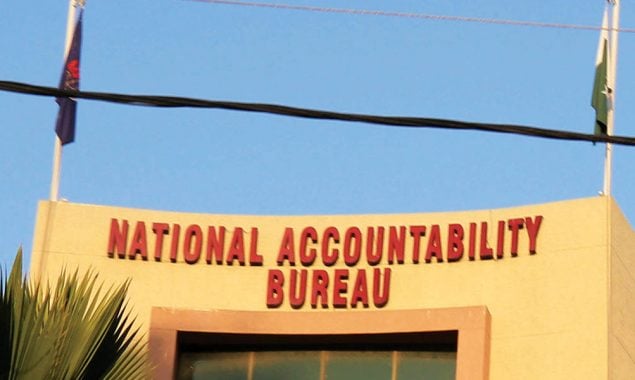Synopsis
While the law demands accountability trials be wrapped up in three months, cases can drag on for years

Bol News
KARACHI: An accountability court in Karachi indicted former federal minister for petroleum Dr Asim Hussain in 2016 for allegedly curtailing gas supply to the agriculture sector to benefit a particular group associated with the fertilizer industry, inflicting a cumulative loss of Rs462.5 billion to the national exchequer.
The National Accountability Ordinance 1999 provides for the completion of trial of an accountability reference within a period of three months. However, Dr Asim’s trial has been lingering on for more than five years and the court is still in the process of recording evidence.
Dr Asim’s case is not the only example. In most of the references, where the accused were indicted some two to three years ago by the accountability courts in Sindh, the recording of evidence have not even begun yet.
Senior advocate Shaukat Hayat who has been representing both the defence and the National Accountability Bureau (NAB) in accountability trials for more than 15 years said that both the prosecution as well as the defence sides are to be blamed for such inordinate delay.
Mehmood Alam Rizvi, a former judge of the Sindh High Court, holds NAB, its inquiry officers and the prosecutors responsible for delay in trials more than anyone else.
“What to talk about the trial, after issuing a press release that such an inquiry related to a matter against certain people has been initiated, the inquiry and investigation officers forget to complete it”, rued Mr Rizvi and added that the people whose names appear in the press release or who are given call-up notices rush to the courts to get anticipatory or pre-arrest bail.
A large number of pre-arrest bail petitions filed in the SHC second the assertions of Mr Rizvi. Several key ministers of the Sindh government have been on pre-arrest bail for more than a year in NAB inquiries. In the bail petitions that had been pending in the SHC before being transferred to the trial court after recent amendments in the accountability law, the inquiry officers and the NAB prosecutors seek time for completion of inquiry on each hearing on the same ground that they were collecting and vetting evidence.
As a last resort, when the judges refuse to grant them more time, they take refuge in the plea that after the completion of the inquiry report, sent to NAB headquarter in Islamabad, a final decision would be taken concerning the matter.
Lengthy paper trail
The biggest and most prominent reason for the delay is the volume of paper evidence that is submitted to the trial courts by the NAB investigation officers (IOs), said Mr Hayat.
“Months, and sometimes even years pass in supplying the copies of such paper evidence to the defence side before the indictment takes place”, pointed out Mr Hayat while explaining that often, the IOs submit photocopies of certain documents with the reference and it takes them several dates to produce the originals.
Moreover, once the trial begins, the prosecution witnesses also do not have originals of the document which the prosecution is required to produce as exhibits, and it can take months to complete the evidence of a single prosecution witness. And to back up the voluminous references, usually a long list of witnesses, to be examined by the court, is produced by the NAB prosecutors.
Delaying tactics
The defence lawyers, said Mr Hayat, often file unnecessary applications in the trial courts and the higher judiciary questioning the nature of the trial. Even during the middle of the trial, the application of transferring the case to anti-corruption or banking courts are filed, he added while explaining that the lawyers who file such applications know well that their applications are devoid of sound reasoning and merit.
Another cause of delays, according to Mr Hayat, has been the appearance of the accused before the accountability courts. He said that influential political personalities belonging to the ruling party in Sindh used to file certificates of their illnesses, issued by certain hospitals, in court, and even went to the length of getting certain hospitals declared as sub-jails for their convenience.
But thanks to former chief justice of Pakistan Saqib Nisar and his random raids at such sub-jails, the practice has come to a halt now, he said.
Mehmood Alam Rizvi says that while the deadline set by the accountability law for the completion of trials is unrealistic, there is a need to bring drastic changes in the law itself.
“Crimes relating to money have historically been hard to prove all over the world. The investigation of such crimes is a specialized job which requires special skills”, he explained and added that only the officers who are experts at investigating financial crimes should be assigned the NAB investigations job.
Not only this, he also advocated the appointment of such people as the judges of accountability courts, who besides law, have studied finance and management at a higher level in order to have a better understanding of the cases that they are dealing with.
“With the … the Civil Procedure Code … there is no hope of achieving the aim of completing the accountability trial at a satisfactory time,” he said and added that there should also be special procedural law for the accountability courts.
Read More News On
Catch all the Pakistan News, Breaking News Event and Latest News Updates on The BOL News
Download The BOL News App to get the Daily News Update & Follow us on Google News.




